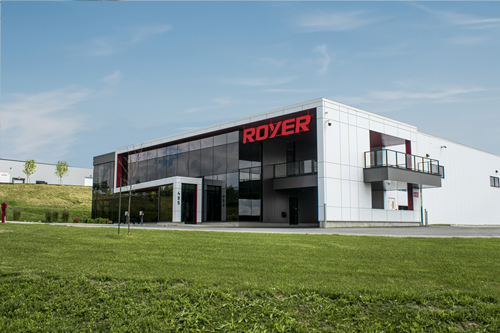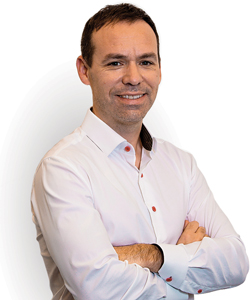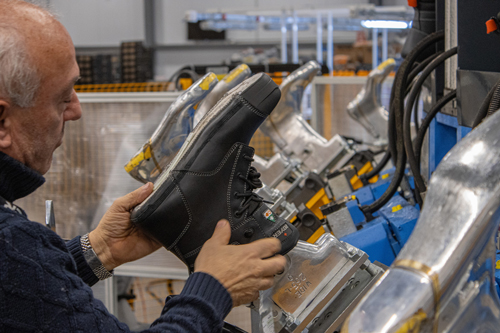Royer: A model of excellence and social inclusion

Since being founded in Lac-Drolet in 1934 by Louis-Philippe Royer, Royer has established itself as a leader in the manufacture of work boots in Canada for high-risk industrial sectors. Thanks to its ongoing willingness to innovate, the business has stood the test of time while staying faithful to its foundational values of respect, rigour and perseverance.
Summary
|
Business: L.P. Royer inc. CED’s support has enabled the business: To acquire and install modern equipment in its new Sherbrooke plant to increase production capacity and productivity and to diversify its product range. |
Being bold
In the 1940s, as the Second World War was mobilizing important resources, raw materials such as leather became rare. This shortage hit many industries hard, including the footwear industry. Faced with a slowdown in activities, Louis-Philippe Royer made the bold decision to open his own tannery, ensuring his operations could continue, improving the durability of his products and establishing his brand name.
Innovation and specialization
His son Henri took over in the 1960s, breathing new life into the business by investing in modern equipment. The founder’s grandson, Yves, then had the business specialize in the manufacture of work footwear for different trades, while also establishing a competent team dedicated to marketing these niche products.
Major contracts in Canada and abroad

In 2012, Simon Larochelle acquired the business and set himself the mission to develop the market in Canada and abroad. Under his leadership, the business concluded major contracts, strengthening the business’s presence on the international scene. In 2019, Simon Larochelle opened a second high-tech plant in Sherbrooke’s industrial park, a key step in increasing its production capacity significantly.
Quality jobs for people with functional limitations
However, launching the new plant posed a considerable challenge: Recruiting qualified labour in the context of a labour shortage. Faced with this issue, the business’s management team established a partnership with Défi Polyteck, an organization with a mission to create quality jobs for people with functional limitations.

As part of a pilot project, Défi Polyteck and Royer trained a cohort of 14 workers with functional limitations, most of whom were hired for the launch of the new plant. The business could thereby meet its production needs, while also fostering the integration into the job market of an often-underrepresented group.
For this operation to be a success, Royer developed inclusive workspaces. This labour force could thus integrate easily and contribute efficiently to the production line, while also benefiting from collective supervision.
As Simon Larochelle, CEO of Royer, explains, “If we hire just one person with a functional limitation, this person risks being pushed to the side and feeling excluded. If we hire several people with functional limitations, from the outset they form a team, fostering their inclusion within the workspaces.”
CED’s support: A lever for innovation and competitiveness

Thanks to CED’s support, the business also invested in technological innovation to develop the cutting-edge equipment it needed in its new Sherbrooke plant to remain a leader in the global market.
“To remain competitive, having partners such as CED is key. Their support enables us to access the capital needed to innovate.” – Simon Larochelle, CEO, Royer
An inspiring model for the industry
The approach taken by Royer and its partners over the years demonstrates that it is possible to combine technological innovation with tradition and social inclusion. Today, Royer continues to grow, with clear targets: To strengthen its presence internationally, concentrate its manufacturing activities in Canada, and share its experience in equity, diversity and inclusion (EDI) for the greater benefit of everyone.